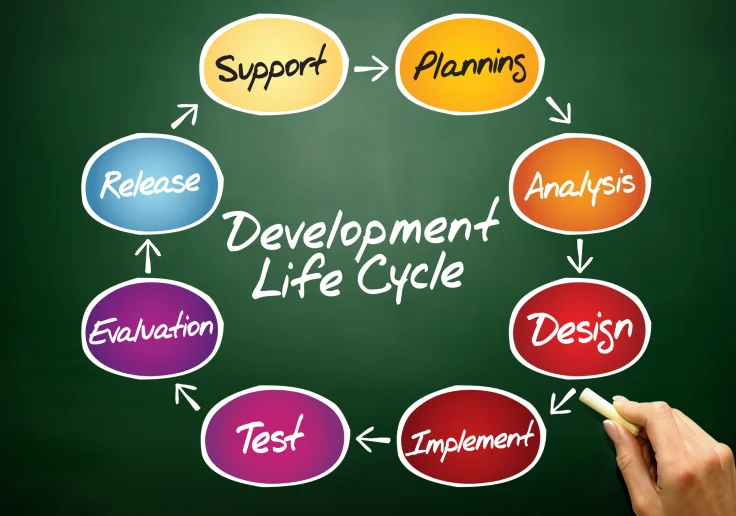Artificial Intelligence Ai In Healthcare & Medical Subject
Because of its capability to handle massive volumes of information, AI breaks down knowledge silos and connects in minutes info that used to take years to process. This can reduce the time and costs of healthcare administrative processes, contributing to more environment friendly every day operations and affected person experiences. For example, IBM’s Watson for Oncology analyzes affected person information to recommend personalized cancer remedies, bettering scientific decision-making. By using AI in the healthcare industry for patient knowledge analysis, medical professionals can deliver extra precise diagnoses and remedy strategies.
Continued research, innovation, and interdisciplinary collaboration are important to unlock the full potential of AI in healthcare. With profitable integration, AI is anticipated to revolutionize healthcare, resulting in improved patient outcomes, enhanced efficiency, and higher entry to customized therapy and quality care. Deep learning fashions in labs and startups are skilled for specific picture recognition tasks (such as nodule detection on chest computed tomography or hemorrhage on brain magnetic resonance imaging).

Providers and hospitals typically use their clinical expertise to develop a plan of care that they know will improve a continual or acute patient’s health. However, that usually would not matter if the patient fails to make the behavioural adjustment necessary, eg reducing weight, scheduling a follow-up go to, filling prescriptions or complying with a remedy plan. Noncompliance – when a patient does not comply with a course of therapy or take the prescription drugs as really helpful – is a major downside.
Cohere Well Being
In addition, ambiguity associated to terminology was a huge consider efficiently identifying all the relevant studies. We allude to the difficulties of defining implementation and the implications it had on our search strategy and screening. Another factor is explainability, a attribute that instantly circumstances the transparency and trust of the AI implementation, which, in flip, are precursors of privacy and equity [52]. Each AI system must adapt its explainability to the context and the viewers utilizing the model. For occasion, a CDS based on a logistic regression model is perfectly understandable by clinicians, but it may be opaque within the context of a patient-oriented app. Other fashions, similar to neural networks, are typically opaque and could be complemented with recent discoveries in explainability methods such as characteristic relevance or visualization [53,54,55].

These tools provide customized health recommendation, offer pharmacy ideas, and aid patients in looking for treatment information promptly. By offering swift and correct responses, they scale back the necessity for sufferers to attend for professional steering. By optimizing processes, lowering medical errors, and facilitating preventive care, AI can help decrease healthcare prices for both suppliers and sufferers. By digitizing healthcare routines and switching to distant care models with telehealth apps, establishments can deal with extra patients a day with fewer resources needed.
Module 7: Ai For Wearable Information
As the need for medical help has grown, the development of AI-based digital nurses has increased. According to a current survey, Virtual nursing assistants corresponds to the utmost near-term value of USD 20 billion by 2027. Now let’s discuss how Artificial Intelligence is using Deep Learning strategies to improve medical prognosis.

Our findings counsel a greater need for implementation science experience in AI implementation tasks, to enhance both the implementation process and the quality of scientific reporting. By analyzing large datasets of affected person knowledge, these algorithms can establish potential drug interactions. This may help to scale back the risk of opposed drug reactions, and cost and improve affected person outcomes [59].
There may be hundreds of hidden options in such fashions, that are uncovered by the faster processing of right now’s graphics processing units and cloud architectures. Their mixture appears to vow greater accuracy in prognosis than the earlier era of automated instruments for image evaluation, often recognized as computer-aided detection or CAD. Natural language processing (NLP) is a form https://www.globalcloudteam.com/ai-implementation-in-business-is-it-necessary-to-do/ of artificial intelligence that enables computer systems to interpret and use human language. NLP is being used in a variety of health knowledge functions, similar to enhancing patient care by way of higher analysis accuracy, streamlining medical processes, and providing extra personalised providers.
We’ve seen healthcare organizations using AI for a quantity of years now, as evidenced by the expertise’s $20 billion market dimension in 2023. In a current poll, greater than half of Vizient clients shared their organizations have some stage of functioning AI. Many early adopters have been using predictive AI, which makes use of historical knowledge and statistical algorithms to make predictions about future outcomes.
Artificial Intelligence In Medical Help
The traditional advice for e-health implementation processes is to contain each ICT and clinical domain experts. All the included studies seem to have followed this primary advice, but our findings counsel there still is a lacking piece of the puzzle-socio-organizational concerns. In addition to scientific publication databases, we used other sources of knowledge, such because the database of FDA-approved AI systems [23].
Integrating AI into healthcare holds wonderful potential for improving disease analysis, treatment choice, and scientific laboratory testing. AI tools can leverage massive datasets and establish patterns to surpass human efficiency in several healthcare features. AI presents increased accuracy, decreased prices, and time financial savings while minimizing human errors. AI in healthcare is predicted to play a serious function in redefining the method in which we process healthcare knowledge, diagnose ailments, develop treatments and even stop them altogether. By using artificial intelligence in healthcare, medical professionals can make more informed choices based mostly on more accurate information – saving time, decreasing costs and bettering medical information administration general. From figuring out new cancer remedies to improving affected person experiences, AI in healthcare guarantees to be a recreation changer – main the way in the course of a future the place sufferers receive quality care and remedy sooner and extra precisely than ever before.
- Data-driven methods have the capacity to unveil patterns in information that in any other case would stay hidden [17].
- Finding the proper candidates during a drug’s improvement statistically raises the possibilities of efficiently passing clinical trials whereas additionally lowering time and cost to market.
- In the scope of this examine, we discuss with AI as techniques that are used to resolve healthcare issues of curiosity and are powered by ML.
- A suite of Corti options mechanically summarizes emergency calls, hastens documentation and tracks worker efficiency.
- The included studies presumably have overcome lots of the limitations because the research are based mostly on the late phases of implementation.
The theme particular person characteristics similar to an individual’s circumstances was proven to affect belief in AI (38, forty one, forty three, 45, forty six, 49). The result showed that individuals in weak positions (less educated individuals, unemployed, individuals with non-Western immigration background, older folks, and sufferers with persistent conditions) had low diploma of belief in AI (49). Hence, the connection between belief and the individuals’ notion of management or empowerment. This may be in maintaining with Luhmann (11) who argued that individuals are prepared to belief if they possess inner security.
AI can be utilized to optimize healthcare by enhancing the accuracy and effectivity of predictive fashions. AI algorithms can analyze large quantities of knowledge and identify patterns and relationships that may not be apparent to human analysts; this might help enhance the accuracy of predictive models and make positive that sufferers obtain essentially the most acceptable interventions. AI can also automate specific public health management duties, similar to patient outreach and care coordination [61, 62]. Which might help cut back healthcare prices and enhance affected person outcomes by ensuring sufferers receive well timed and applicable care.
AI instruments can enhance accuracy, scale back prices, and save time compared to conventional diagnostic methods. Additionally, AI can reduce the risk of human errors and provide extra correct results in much less time. In the long run, AI technology might be used to help medical selections by providing clinicians with real-time assistance and insights.
Beyond The Thrill: A Roadmap To Accountable Ai Implementation In Healthcare
Hybrid Type 2 considers each the scientific effectiveness and analysis of an implementation strategy. The major goal of Hybrid Type three is to evaluate the effectiveness of the implementation strategies, with a secondary objective to observe different knowledge similar to health outcomes. Implementation science is a reasonably new subject, whose emerging theories, fashions and frameworks have the potential to inform our understanding of AI implementation in a extra extensively accessible and systematic means. This multidisciplinary method, combining AI and implementation science, transcends the traditional boundaries of every of the fields. Blending these two disparate, yet complementary, fields is essential to our understanding of AI implementation in healthcare. However, there’s a need to reconcile the methodological variations and conflicting domain-specific jargon.

Here are five ways in which leaders healthcare leaders should seek out alternatives to implement AI solutions of their operations. Innovative AI know-how, instant language understanding with ChatGPT Certification Course online. Now let’s have a glance at how a use case of Artificial Intelligence in healthcare can be implemented by utilizing Deep Learning concepts.
6 Important Appraisal Of Individual Sources Of Evidence
Increasing the speed of reactivity to major well being issues presented to suppliers by patients. The concern with personalization has all the time been its scalability—and the place AI can really push the boundary is its ability to rapidly analyze and synthesize personalized knowledge units for solutions tailor-made to every patient’s wants. While telemedicine saw a strong uprise amid the Covid-19 pandemic, it has only turn out to be extra normalized even after we’ve made the sluggish transition again to in-person care. With this said, lots stays to be improved in how distant care is administered right now since the convenience of telemedicine makes it a popular choice amongst sufferers globally—in notably for those in remote areas. From supporting docs at bedside to offering well-calibrated answers to basic affected person questions, AI can make the affected person feel better informed, extra comfortable and better taken care of in the process.

Its influence is only set to accentuate alongside ongoing technological advancements, thus making it much more outstanding in our everyday lives. With that being said, it’s no shock that AI is changing into more and more prevalent in the healthcare business. More lately, IBM’s Watson has acquired appreciable consideration within the media for its give attention to precision drugs, significantly cancer prognosis and remedy. Most observers feel that the Watson APIs are technically capable, however taking over cancer treatment was an overly formidable goal.
The current study, however, focuses on empirical observations from the late phases of implementation and roll-out. The introduction of high-throughput genomic sequencing technologies, combined with advancements in AI and ML, has laid a powerful basis for accelerating customized medication and drug discovery [41]. Despite being a treasure trove of useful insights, the complex nature of intensive genomic knowledge presents substantial obstacles to its interpretation.
